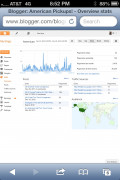SCAM Test
You hear a promotion on the radio or receive an unexpected e-mail that convinces you that there are still ways to earn a living outside a normal job. Are you out of work or under-employed? If you are, these promotions can be very enticing. These are tough economic times and desperation abounds. Desperate people may take extreme actions. Learning of an opportunity may spur an individual to act before gathering all the facts or learning the possible economic consequences of actions.
This hub profiles certain tests that can be applied to an opportunity to determine whether the opportunity is feasable or more likely a scam.

Method of Delivery
Before the age of personal computers, schemers would use direct mail campaigns to lure victims. The age of the personal computer has certainly made the task of promoting a scam easier. Experienced schemers can send out thousands of e-mails for next to nothing. Twenty years ago postage would have been required to send out each flier in the mail.
The postal service, however, still delivers mail at bulk rates and scams still show up in mail boxes. Regardless of the delivery method, if the information was not requested then there is a high probability that an unexpected opportunity is a scam
How was the opportunity received? SPAM is a classification for unsolicited or unexpected marketing email. Schemers send SPAM to lure unsuspecting individuals into various schemes.
Reliance on Testimonials
You have probably seen many web sites that are completely wallpapered with testimonials of claims from :people just like you" who have experienced amazing results from participating in a program. Remember the old saying "if it seems too good too be true it probably is." Even if the claims of the individuals are true this does not mean that you will experience the same results.
Testimonials are meant to act as substitutes for word-of-mouth promotions.
Does the promotion provide contact information for the people depicted in the testimonials? If there is contact information, can the people bee reached at home or are calls and requests routed through a call-center. If you call into a call-center then the operators, alleged people in the testimonials, are probably reading from scripts.
Copy writers make plenty of money composing testimonials for promotions. Some of these writers have never seen the product or service being advertised. They are given lists of requirements to meet in their writing and names to use. Phony photographs that look like "real people" are inserted to increase the credibility of the testimonials. These portions of web sites or other promotions are totally worthless.
Internet Marketing Guru
What does a phrase like Internet Marketing Guru do to increase the feasibility of an opportunity? The Probable answer is nothing. You have probably seen this phrase or one like it in promotional materials. Such as Internet Marketing Guru Reveals the Secrets to Earning over $5,000 per month using his system.
There is little doubt that the Internet marketing guru made plenty of money promoting products or services on the Internet. However, does this mean that his secrets will lead you to success? Probably not. In many instances, the Internet marketing guru made his fortune by taking money from unsuspecting victims, such as the people targeted by the advertisements.
A Matter of Ethics
Does the opportunity promote an ethical activity? What is an ethical activity? An ethical activity is one that will not harm other people. If you are asked to promote a program that makes the bulk of money by taking money from other people then you are not partaking in an ethical activity. An ethical oppertunity will benefit both parties involved in an activity.
Pyramids and Ponzi Schemes
A pyramid scheme is one in which participants pay a membership or other fee to participate. The fees paid by participants are then distributed to those participants who joined earlier and are above the new participant. These schemes often use phrases like up-line and down-line.
MLM opportunities also use the terms upline and downline but the difference is that MLM programs require that the participants actually sell products and/or services. What sets a MLM program apart from a pyramid scheme is that a pyramid scheme relies on the membership fees to generate income. MLM programs earn money through a combination of the sale of products and the generation of membership fees.
Transparency
Does the promotion inform the prospect of the work involved. If not then there is a high probability that the program has something to hide. Many schemes divert the prospects attention away from the obvious concerns by illustrating the possibilities and program successes. The reliance on testimonials, mentioned above, and the photos of successful participants standing in front of a yacht or expensive car raise the prospect's desire and belief. All this occurs while hiding what actual work must be done.
The highest paid people on the planet are sales people. However, not everyone can sell and the promoters of alleged opportunities know this fact. So how do they entice someone into selling who is not a good sales person? The answer is that they really do not care if the prospect can sell or not. The promoters make their money from new people buying into the opportunity so what do they care if most fail? They don't. A few and lots of failures make plenty of money for the promoters and that is what the opportunity for.
If an opportunity hides what you will do if you join, you will most likely be recruiting or selling.
Advance Payment
Requiring a prospect to pay in advance is a variation of the "Captive Relative" swindle. The information is held hostage until the prospect makes a small advance payment. After the promoter receives the payment they may reveal the secrets of the universe. However, more times than not the information is nothing more than the prospect could have obtained for free on the Internet. Almost any information you want is available online for free if you know where to look.
Beware giving out credit card or bank account information. Sometimes these advance payment schemes offer a "free 30 day trial." All you do is pay shipping and handling. However, another payment will be charged to your account unless you do cancel in the required 30 days.
The all you pay is shipping and handling is a ploy to generate interest in something for nothing. Free for 30 days, or variations thereof are ploys on the "puppy dog close"







